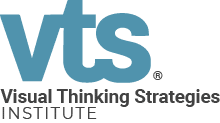Language is not something we acquire; rather it is something we participate in. As such, we do not ever really learn a language, we practice one. In moments when we achieve creativity, or poetry, we play in one. Language is also a discipline. There is politics in how we use a language and at times, consciously or unconsciously, how we enforce it. Even one of our most basic concepts of which words are “right” and “wrong” to use, that is, what is acceptable and what is vulgar, participates in one of these hierarchies: for “vulgar,” from the Latin vulgus, means common, or low class.
In the two essays in this edition, by Lupe Limón Corrales and Raquel Rojas, we learn that embedded within the practice of language—in its everyday use, but especially in moments of instruction—are many such hierarchies arising out of histories of domination based on race, class, and gender. In truth, language is never correct or incorrect, it is always positional. In the same essay by bell hooks that Rojas quotes, hooks also writes, “Often when the radical voice speaks about domination we are speaking to those who dominate. Their presence changes the nature and direction of our words.” When I read this, I think about my own place in the culture and politics of domination—and what part, if any, I may play in overturning it.
There is nothing inherently liberatory about education; in fact, there is much potential for suppression, erasure, or even harm. If our goal as educators is not to assimilate or indoctrinate into the culture of domination, we must reflect deeply on the language we use when we teach: what we allow or disallow, the words we validate or invalidate, affirm or deny. As teachers, we may have the potential to encourage, inspire, and empower, but that necessarily means we also have the power to silence, oppress, and belittle.
Language is always positional. And since all discourse must take place in this medium that is full of creative as well as coercive potential, there is no discussion that is not rife with possibilities of both. If we hope to help our students become creative, free subjects, then part of our practice must be to question the hierarchies inherent in language—as well as our position in helping to maintain or overturn them.
The two essays in this edition teach me how, and for that I am enormously grateful. —Madison Brookshire
Special thanks to Kabir Singh, peer reviewer for this edition.
